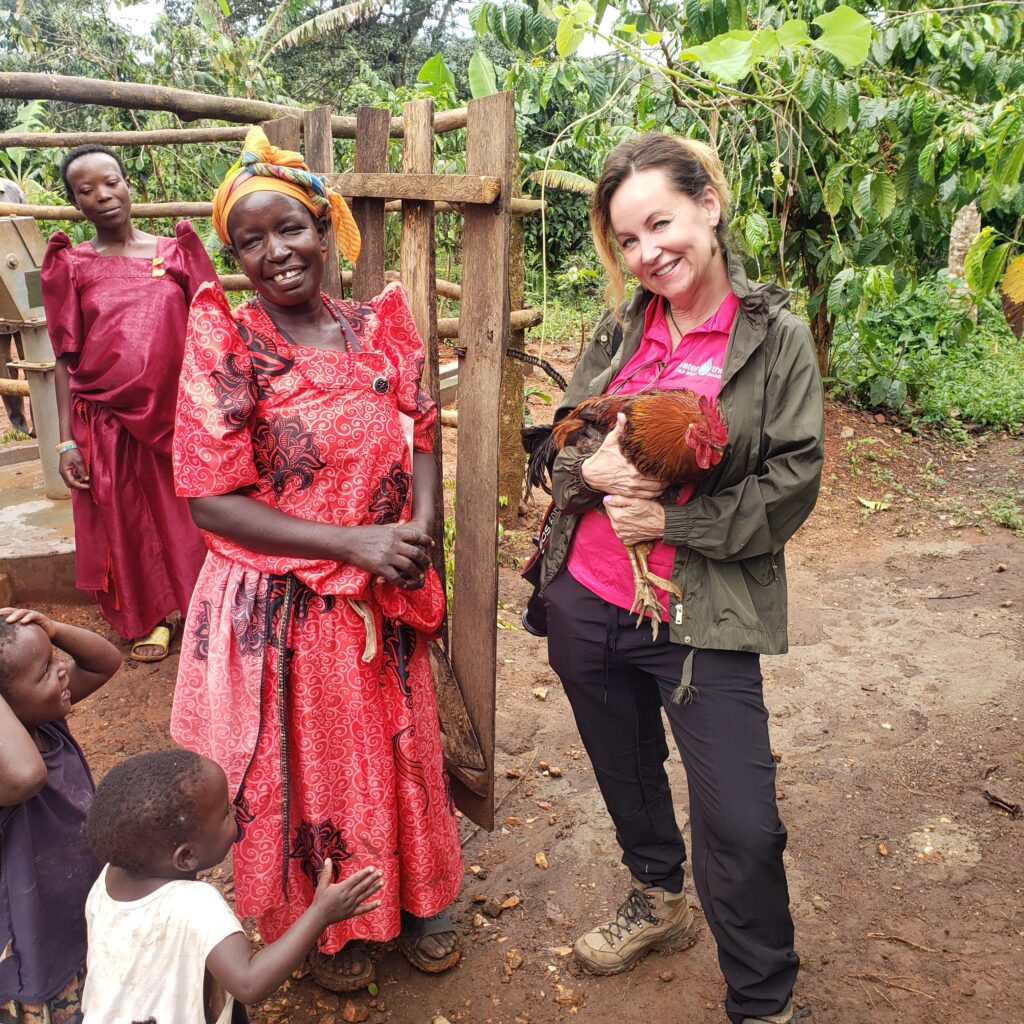
The Answer to Which Came First: the Chicken or the Egg?
Gift giving is part of showing gratitude and love. Children learn early on that a flower plucked from the yard (even if it’s a dandelion) can bring a smile to any mother’s face.
Birthdays are commemorated with gifts. Weddings are recognized by gifts for the newly wed couple. Every child in the United States gets excited about the gifts that Santa will bring. And the essence of Christmas is the ultimate gift God gave to the World.
Gift giving is no different in Uganda where I am currently. As gifts of sugar cane, sweet potatoes, cassava, bananas are laid at my feet, I’m overwhelmed with emotion. These people who don’t have clean water to drink are presenting me with gifts. Yes, I realize it is in gratitude for the well that they now have in their village. But it’s difficult to take when they have so little.
However, I’ve learned that to refuse a gift is saying the gift isn’t good enough, so I accept with an open heart and a smile on my face.
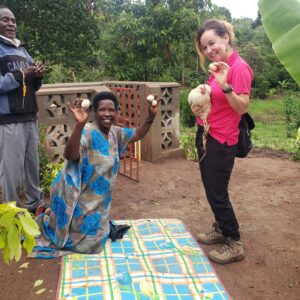
It isn’t the first time, but I’m always surprised when I receive a live chicken as a gift. As the rooster was placed in the truck, I was assured he would make a nice soup. I shared that growing up on a farm, we only ate animals we didn’t know and I felt Mr. Rooster was now the Water to Thrive mascot.
Our newly acquired pet was calm and quiet as we drove from village to village visiting wells. Jokingly, I said that he needed a hen. Imagine my surprise when at the next village, I was presented with a hen and several eggs. So I’m pretty sure the answer to the age old question of which came first, the answer is clearly the chicken.
The days here are long as the villages we serve are remote, which means the hotels and guest houses are located in the nearest town large enough to offer lodging. As we travel to the rural areas to visit with the well beneficiaries it also means there is plenty of time to talk to our driver. We speak to them and partner staff about life, politics, religion, food, etc.
The gift of clean water is invaluable. I only wish I could share the joy, the expressions, the laughter and what it really means to the people who now have water.
One morning after I became the chicken empire owner, we had a discussion about marriage and weddings. Apparently, there are three parts to a wedding. The first part involves the groom (who plans and pays for the wedding) meeting the intended bride’s parents and family. He must present them with gifts and/or payment as demanded and agreed upon.
In the rural areas, cows are normally requested. If the gifts are acceptable to the family then the groom moves to stage 2. The second stage is a meeting of the groom with the aunties. The aunties can be actual aunts are other women in the life of the intended bride whose approval must be gained. There is a dance procession and the groom is identified. He then joins in the dancing and if all goes well, the engagement/wedding reaches stage 3.
The third stage is the actual wedding, the groom has a team which includes his brothers, friends, co-workers, etc. They help him plan and set a budget. The team contributes to the dowry he presents to the family and also helps in the cost of the wedding.
I shared that in the United States, the bride’s family traditionally pays for the wedding. They were shocked that the bride was the one who paid.
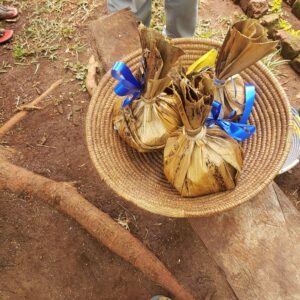
The gift of clean water is invaluable. I only wish I could share the joy, the expressions, the laughter and what it really means to the people who now have water. It is only possible because you cared enough to help someone you’ve never met. Before the well, they struggled daily to find water, but now their struggles have been lessened because you.
In the words of a beneficiary, “a dream has come true. We have great happiness and you saved us. We ask for blessings for you and hope that you flourish and are able to help more people.”

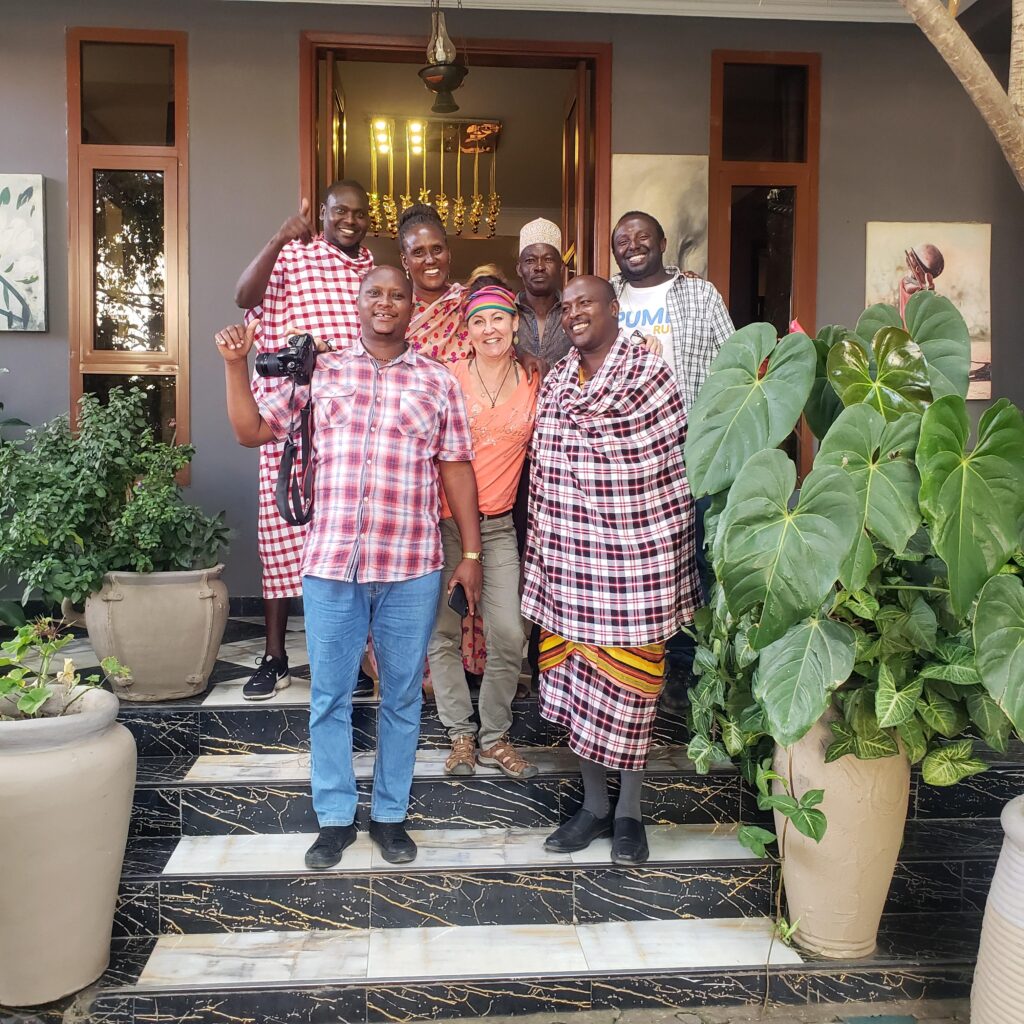
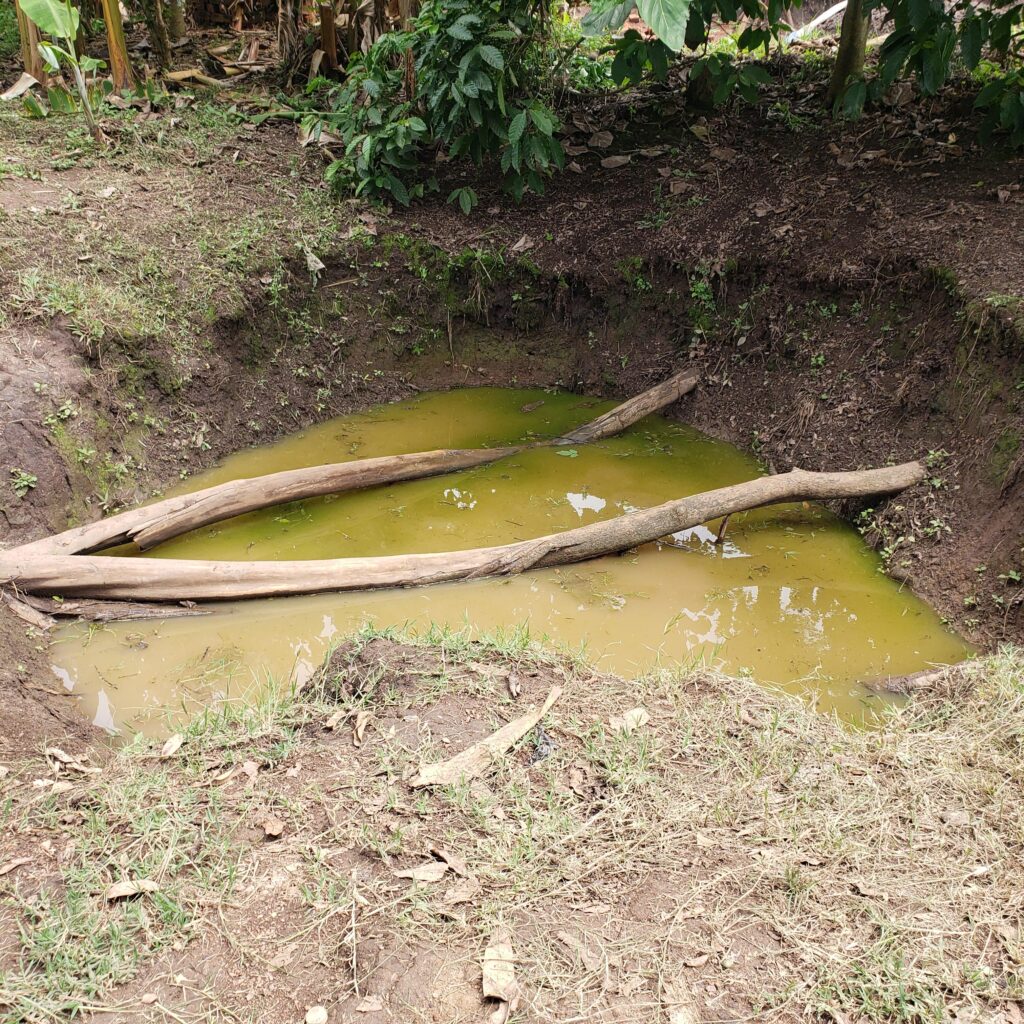
About The Author: Susanne Wilson
Susanne holds a Master of Science degree in secondary education, an MBA from Auburn University, and a certificate in Nonprofit Management. She has been a leader in the non-profit sector since 2001, working with both post-secondary educational institutions and now serves as Executive Director of Water to Thrive.
More posts by Susanne Wilson